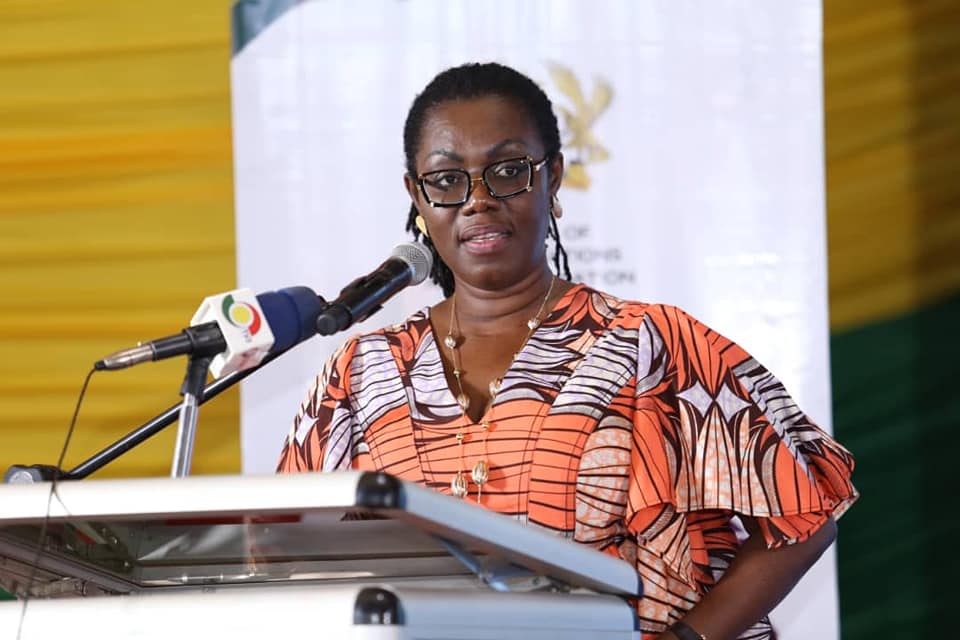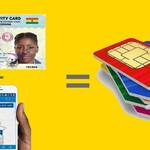The National Communication Authority (NCA) deactivating SIM Cards is unwise, arbitrary and politically suicidal for the government in power.
This is because over 2.5 million (2,565,705) Ghanaians are unable to register their SIM cards because the National Identification Authority (NIA) is yet to register and issue them Ghana cards.
This represents 13% of the 19.5 million (19,951,253) population aged 15 years and above that qualifies to be registered.
In addition, many registered for more than one year but due to a backlog, their cards have not been printed, let alone issued to them.
Punishing innocent people
Punishing these people for no fault of theirs and impacting their lives negatively including preventing them from having access to their money on mobile money accounts has far-reaching implications, even electorally, for the governing party.
Registration statistics
Registration statistics as of March 3, 2023 published on the NIA website shows that 17.3 million (17,385,548) out of 19.5 million (19,951,253) people aged 15 years plus have been registered.
It means over 2.5 million (2,565,705) people are yet to be registered.
Out of the 17.3 million (17,385,548) registered, 16.7 million (16,753,909) Ghana Cards have been printed.
Of the printed Ghana Cards, 16.1 million (16,111,846) have been issued to their owners.
This means 642,063 cards printed have not been collected by their owners.
As of March 1, 2023, there was a backlog of 541,529 but this has largely been printed as at today.
Therefore deactivating the SIM cards of those yet to be registered is unfair, arbitrary and an abuse of power by the NCA and the Ministry of Ministry of Communications and Digitalisation.
The NIA is unable to register and issue cards to the unregistered population because, government owes suppliers of materials, including the blank cards used to print the Ghana card huge sums of money.
In view of this, the suppliers have decided not to release the blanks which are in warehouses in Ghana to the NIA until they receive substantial payments.
As at the end of 2022, government owed suppliers and banks about $117 million and this amount started accruing as far back as 2021.
As the Electoral Commission (EC) submitted a Constitutional Instrument (CI) to Parliament in which it stated that the Ghana Card will be sole document for voter registration, the legislature summoned the EC and NIA to explain how feasible it will be.
GH₵100m for release of blank cards
The day the two bodies were grilled by Members of Parliament, the Finance Ministry announced the release of GH₵100 million as part payment of the debt.
This amount of GH₵100 million is less than 10% of the about $117 million government owes the suppliers.
When the GH₵100 million was credited to the bank, suppliers released cards to print only the 541,529 backlog for persons who had registered but had not had their cards printed.
GH₵173m to support expedited printing of backlog
The Ministry of Finance was expected to release an additional GH₵173 million to support expedited printing of the 541,529 backlog.
Govt was supposed to pay GH₵273m to clear backlog
It means government was supposed to pay GH₵273 million for printing of the backlog.
Govt paid GH₵209m
However, government paid GH₵209 million to CAL Bank about 20% of what they owe depending on the exchange rate.
Govt defaults on payment plan
Government is in default of the payment plan agreed with CAL bank by about $30 Million
Even the number of blank cards released could not print all the backlog leaving over 3,000 outstanding that can only be printed when more blanks cards are released.
Shortage of blank cards
Currently, the NIA does not have the blank cards needed to print the Ghana Card, and until government makes further substantial payment to the suppliers, blank cards will not be released to the NIA to register and issue cards to the over 2.5 million (2,565,705) yet to be registered.
With these statistics, the NCA ordering telecommunication companies to deactivate phone numbers not linked to the Ghana Card is unacceptable, arbitrary and an abuse of power against citizens who could not register for no fault of theirs.
9m SIM Cards deactivated
At least nine million SIM cards cannot be used to make or receive calls, send text messages or make financial transactions over failure to re-register.
7m Momo accounts deactivated
According to the Chamber of Telecommunication, about seven million or so mobile money accounts have been affected by the SIM card deactivation.
Mobile money is now an indispensable part of the Ghanaian financial system.
It provides a mechanism for more than 48 million account holders to undertake transactions.
Therefore, blocking over seven million mobile money accounts will have far reaching negative implications for hundreds of thousands of Ghanaians.
The Ghana mobile money market size reached $121.8 billion in 2022 making it the dominant payment means in the economy.
Total Mobile Money transactions in 2022 hit a record ¢1.07 trillion
All the above provide enough evidence that the government is not justified to deactivate SIM Cards.
The government is duty bound to clear all the debt owed NIA’s suppliers to release blank cards and other production materials to register and issue cards to remaining 2.5 million (2,565,705) aged 15 years and above.
If this is completed and people decide not to pick up their cards, then deactivating SIM Cards at this point will be justified.
- Tuesday, May 6, 2025 Newspaper Headlines - 6 May 2025
- Mahama unveils Code of Ethics for appointees - 5 May 2025
- No system breach, MoMo is safe, secure- MTN - 5 May 2025




